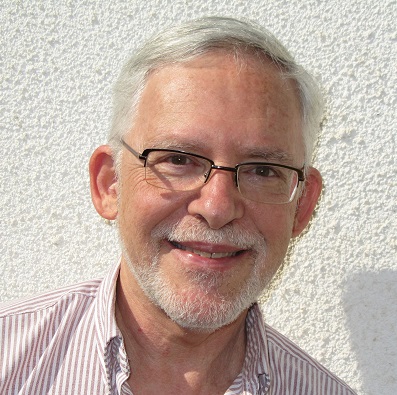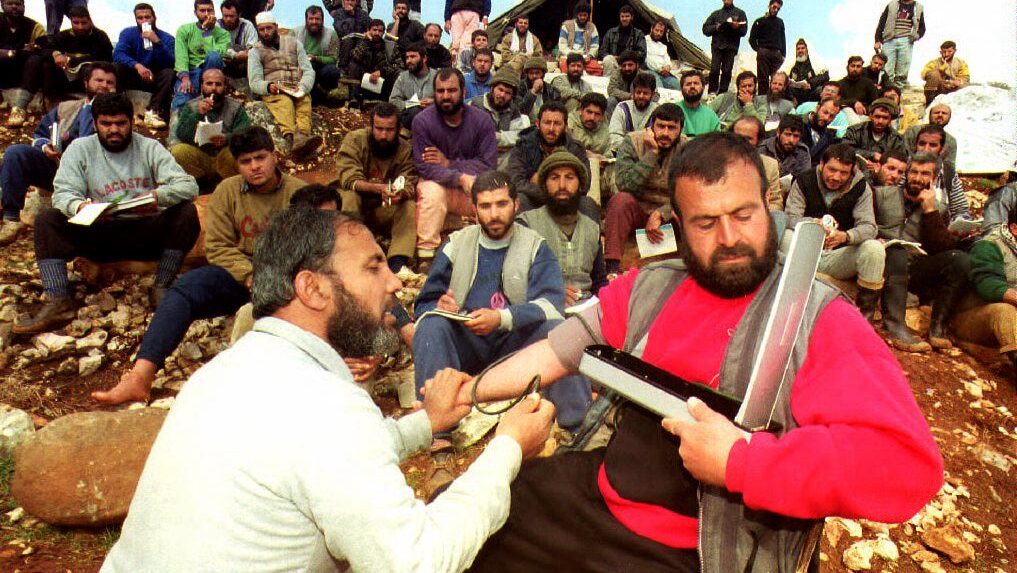Israel’s ‘Concept’ of Hamas Failed on Oct. 7, but the Flaws Have Been Obvious for Decades
Israel convinced itself that Hamas was more interested in governing Gaza than wiping out the Jewish state. That proved to be wrong, as anyone familiar with Hamas should have seen coming.
Details of the mistakes Israel made leading up to the Hamas atrocities of Oct. 7 are coming to light. Israeli investigative reporter Ronen Bergman has recently published two jaw-dropping articles about how much Hamas knew and how Israeli intelligence warnings were ignored—because of the mistaken “concept” that Hamas could be domesticated and transformed into a relatively tame government. This is not to say “I told you so,” but I met with the founders of Hamas in 1988, less than a year after the terror group was founded. Even then, it was clear where they stood. Here’s an excerpt from my book Why Are We Still Afraid? about that meeting:
It was summer 1988. We were sitting in a cramped office, more like a closet, just off a darkish corridor in the Islamic University in Gaza City, a block-like building with green hallways and cement floors, the nerve center of Hamas.
The other people in the room, sipping coffee, trading cigarettes and jokes, were two of the founders of Hamas—Mahmoud Zahar, a physician, and Atef al-Adwan, a professor at the Islamic University.
Outside on the dusty, steaming streets and rutted paths of poverty-stricken, overcrowded Gaza, Palestinians were battling Israeli soldiers with rocks, bottles, and firebombs. The first “intifada,” or uprising, had erupted in the winter, leading to the emergence of Hamas, an Arabic anagram for Islamic Resistance Movement.
Hamas was a whole new concept for fighting Israel. The PLO, Israel’s prototype enemy for decades, paled in comparison.
A quick read through the Hamas charter revealed deep hatred for Israel, Jews, and Zionism from an Islamic religious point of view that made the PLO’s political hatred look like the mere barking of a junkyard dog.
The charter starts with a quote from the Quran about the Jews: “They have incurred anger from their Lord, and wretchedness is laid upon them. That is because they disbelieve the revelations of Allah, and slew the Prophets wrongfully. That is because they were rebellious and transgress.”
Hamas’ charter goes downhill from there, stooping even to mentioning the notorious 1905 antisemitic forgery, “The Protocols of the Learned Elders of Zion,” and blaming Jews for all that is wrong with the world in the classic mold of centuries of Jew-haters.
“They (the Jews) also used the money to establish clandestine organizations which are spreading around the world, in order to destroy societies and carry out Zionist interests. Such organizations are: the Freemasons, Rotary Clubs, Lions Clubs, B’nai B’rith and the like. All of them are destructive spying organizations,” the charter said. “There was no war that broke out anywhere without their fingerprints on it.”
And there I was in a small room in a Hamas stronghold with two of the group’s main movers. Did they know that besides being an American radio reporter, I was an Israeli and a Jew?
Probably. Through the years, as I walked down streets or open-air markets in the West Bank and Gaza, microphone in hand, a tape recorder with a CBC News label hanging prominently across my belly, someone would yell out in Hebrew, “Hey, Moses, what’s happening?” to see if I would react.
But it didn’t matter. To Adwan and Zahar, anti-Semitism was institutional, not personal. I was in no danger.
They chuckled with me about the strange way Egyptians speak English, adding extra syllables to words. “Exact-ee-ly,” Zahar chortled. “Exact-ee-ly.”
And then they explained to me why there must be no Jewish state in the Mideast. The Quran said the whole area is Islamic. Period.
Jews (like me) who came from somewhere else must go home. Jews who lived in Palestine before the state of Israel was founded in 1948 could remain. They would be protected and cared for as an honored minority—with limited rights, of course, since only Islam can rule here.
The Jews weren’t the problem, they said. It was Israel and Zionism. Everything was fine until Israel and Zionism came along and stole their land. Before that, they said, ignoring the massacres of Jews in 1929 and 1936, everyone got along. It could be that way again if only Israel would cease to exist.
“The Islamic Resistance Movement is a distinct Palestinian movement which owes its loyalty to Allah, derives from Islam its way of life and strives to raise the banner of Allah over every inch of Palestine,” the charter said, referring to Israel, the West Bank and Gaza. “Only under the shadow of Islam could the members of all regions coexist in safety and security for their lives, properties and rights.”
In kindergartens and schools Hamas set up in Gaza, children were being taught to see the world through the blinders of the operative verses of the Quran: Israelis were non-believers and usurpers who must be fought and killed. Jihad was the only way.
The message was readily absorbed among the pitifully poor people in the dusty territory.
Gaza became a fertile field for growing suicide bombers among the hopeless youth who faced a stateless existence trapped in a seaside hellhole with no future.
Now [in 2006], nearly two decades later, Hamas has surprised itself and won a parliamentary election, putting itself in the position of official power in the West Bank and Gaza. And now the world is wondering—do they really mean all that?
The charter is not an old, dusty document written by an idealistic founding generation to be memorized in classrooms but forgotten in practice, like the US Declaration of Independence. Most of the people who wrote it are still around (some have been assassinated by Israel). The charter guides them because it sums up their core beliefs.
But they are patient. They acknowledge that there is a powerful state of Israel, and they are relatively weak. They offer Israel a long-term cease-fire if it will just get out of all of the West Bank, Gaza and east Jerusalem. The Palestinians would establish a state there and bide their time until the inevitable victory of their brand of Islam:
“The time will not come until Muslims will fight the Jews and kill them; until the Jews hide behind rocks and trees, which will cry: O Muslim! There is a Jew hiding behind me, come on and kill him!”
The deepest-held beliefs of Hamas dictate Israel’s destruction. It’s just a matter of timing.
Will they try to send waves of suicide bombers into Israel when they take office, while they’re cleaning up the corruption-plagued Palestinian government or society? Or will they tackle removal of Israel only when they’re firmly in control in a few months or years?
When. Not if.



